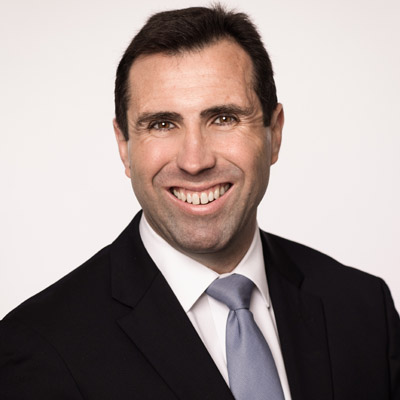You are here
- Home
- New podcast: Enhancing skills in Northern Ireland’s tech sector
New podcast: Enhancing skills in Northern Ireland’s tech sector

There is a widespread skills shortage in IT and professional services roles. In this podcast, our guests explain how flexible learning can address these challenges and how Belfast-based Datactics is proactively facing these challenges.
Northern Ireland has a flourishing tech scene, but like many other parts of the UK, it is suffering from a skills deficit. The Open University (OU) recently hosted a podcast exploring the tech sector in Northern Ireland and what can and is being done to boost the provision of local skills. Laurence Knell, Associate Lecturer at the OU Business School hosted the podcast. He was joined by Matt Flenley, Head of Marketing at the Belfast-based tech company Datactics, Dr Lynsey Quinn, Senior Skills and Partnerships Manager at the OU in Northern Ireland and Simon Tindall, Head of Skills and Innovation at the OU.
 Laurence Knell, Associate Lecturer, The Open University Business School
Laurence Knell, Associate Lecturer, The Open University Business School Matt Flenley, Head of Marketing, Datactics
Matt Flenley, Head of Marketing, Datactics Dr Lynsey Quinn, Senior Skills and Partnerships Manager, The Open University in Northern Ireland
Dr Lynsey Quinn, Senior Skills and Partnerships Manager, The Open University in Northern Ireland .jpg) Simon Tindall, Head of Skills & Innovation, Business Development Unit, The Open University
Simon Tindall, Head of Skills & Innovation, Business Development Unit, The Open UniversityThe current skills landscape
Early on in the podcast, Matt talked about the current situation regarding tech skills in Northern Ireland. “We have a real shortage of talent,” he said. “Not just in computing and IT but across a whole range of professional services type roles.” He said the situation is so acute that even the big multinational professional services companies are struggling to fill roles.
One of the ways that Datactics is trying to address its skills gaps and boost the provision of local talent is by partnering up with institutions such as the OU in Northern Ireland order to train up its future workforce. The company has sharpened its focus on what skills it needs now and in the future and how to get them. Computer sciences is a big area for Datactics, whether it’s people who can do heavy coding or people who can make the links between data and business activity. Soft skills are also important, with a particular emphasis on reasoning and analytical skills. Matt says it’s all about employability and future needs.
Employability, to us, is around future proofing. It’s around the role of humans in the future work environment. It’s about being able to understand what’s going to make this kind of role and this kind of person thrive in the future economy.
Matt Flenley
Head of Marketing, Datactics
There are various ways that organisations can develop employees’ employability. Within Datactics, employees have combined work with OU study to give them the skills to thrive within the company.
Skills for employability
Lynsey also talked about the importance of employability, highlighting three skills that she thinks the future workforce needs. First on the list was self-leadership. “People have to increasingly deal with uncertainty. We are seeing a need for our workforce to continually gain new skills. This requires flexibility, a positive attitude towards ongoing learning and curiosity.” Lynsey also mentioned business critical skills around leadership, critical thinking and decision making.
Second on her employability list was interpersonal skills – the ability to learn and relearn, adaptability, business acumen and the ability to take the initiative and seize opportunities. Digital was the third skill, with Lynsey talking about the need for people to embrace digital in all aspects of their lives, at work and at home.
The role of The Open University
The OU in Northern Ireland has developed very strong partnerships with local employers and institutions, from the big multinationals, government bodies and third sector organisations to smaller, newer enterprises. The OU is in constant communication with these partners about their upskillling and reskilling needs. Lynsey says the OU is always innovating in order to offer courses that meet employers’ needs. A good example of this is microcredentials, the short workplace-based courses that the OU has been developing over the past 10 years. “Microcredentials offer a steady diet of learning and development in a cost effective/value for money way, particularly for micro/small businesses,” said Lynsey.
The microcredential ecosystem will play a key role in developing the future workforce. And as awareness builds with employers, we will see microcredentials more commonly listed on CVs and job applications. No doubt microcredentials will play a significant role in developing key policy areas, including learning for life.
Dr Lynsey Quinn
Senior Skills and Partnerships Manager, The Open University Northern Ireland
A local solution for local challenges
Simon agreed with Lynsey that the OU in Northern Ireland is well placed to help a wide range of organisations. It has a deep understanding of the skills and business landscape across the UK, but also a more local perspective and knowledge of local needs. “It is very much about having a localised approach, working with customer groups to develop a localised customer solution. It could be building on a qualification, building on a set course portfolio, using things like webinars, workshops, mentoring programmes and research to really address particular needs, based around the needs of the area.”
Simon said this is evidenced by the OU’s approach of providing courses and content that is really targeted to current and emerging business needs.
Find out more about the OU in Northern Ireland
Contact the OU in Northern Ireland
You might also like...
Find out how we can help your organisation
Please contact us to speak to one of our business team advisors.
Not on our mailing list?
Sign up to receive regular emails that are full of advice and resources to support staff development in your organisation.


